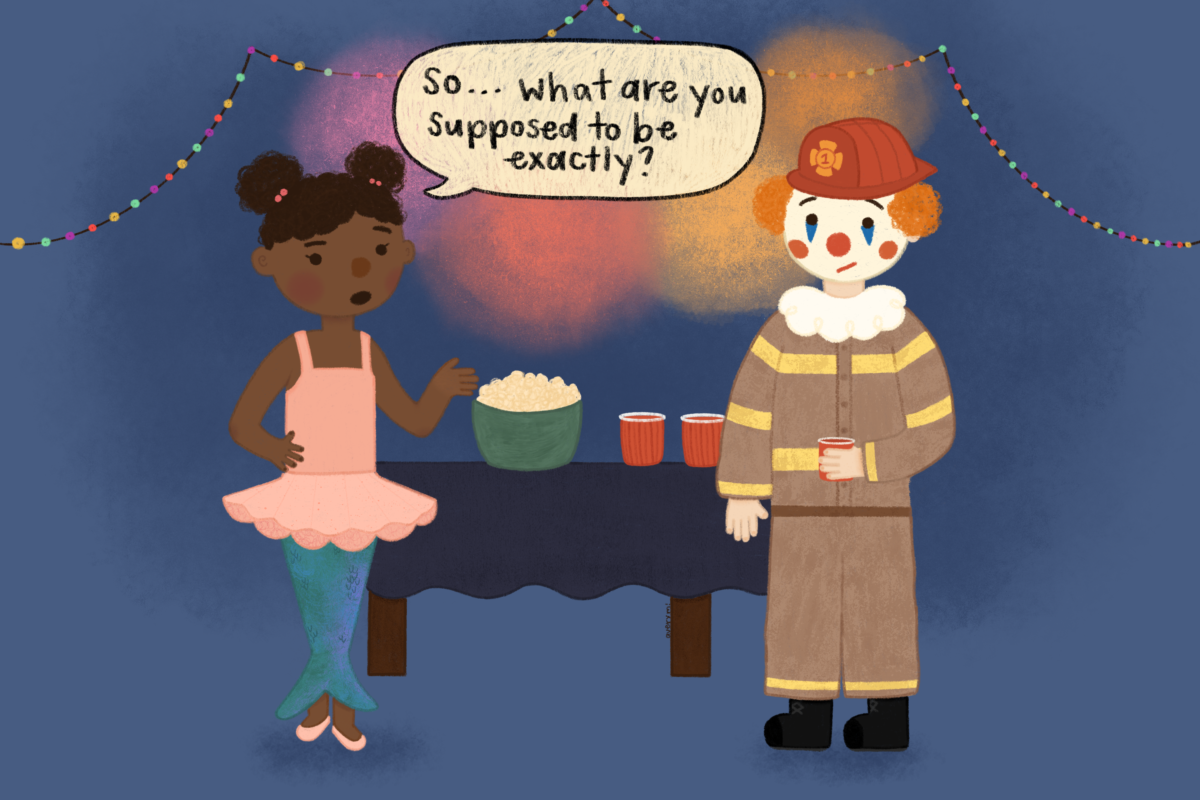Please let me wear my regular clothes again
Picture this: it’s a Friday night, and you’re either hunched over a computer trying to squeeze out the last bit of academic energy you have left in you, or anxiously procrastinating. The weekend is near and you’re ready for a night on the town — you deserve one, after all. But you’ve been so caught up in the academic haze that you forgot to make plans.
You eagerly ask your roommates what they have planned. One has opted to spend the night with their significant other watching the 2006 critical flop (yet still beloved) film Aquamarine; the other has a date. Before admitting defeat, you rapidly fire off “what’s the move” texts to anyone you’ve ever had a remotely good time with — and some you’re willing to give a second chance to.
It’s growing late and you’re about to give up when your cracked iPhone buzzes with hope. With a racing heart, you check your messages.
“We’re going to so-and-so’s party on St. Dennis, you can totally come,” one of the fun friends has informed you. You run to the closet to pick out your best threads. When the phone buzzes for a second time, the text says: “It’s pirate-themed. See you there <3.” With a sinking heart, you hang your brand new navy blue Uniqlo chore coat back in your closet. Panic sets in. Do you wear an eye-patch? A funny hat? Do you need a parrot?
This is the third week in a row you’ve been underprepared for a theme party. Time and time again you’ve been asked to dress for different themes, like goth, 90s night, like characters from the movie Midsommar, all in white, all in brown and one time even just like someone named John.
You try to participate, but between the price of beer and the snack you know you’ll need on the way home, your budget is tight. How can you justify a whole new outfit that you will never wear again for solely this one night?
You consider not going at all, but reluctantly, you grab a torn shirt, your roommate’s funky old striped pants and a bandana. You look nothing like a pirate. You’re dressed closer to Johnny Depp in real life than Jack Sparrow and you feel ridiculous. It’s not fashionable, not flattering and not fun. But dammit if you aren’t participating because parties have rules and you have to play by them.
On your way, you stop at the depanneur to get the standard six pack of whatever beer is under ten dollars. The man behind the counter gives you a look of confusion and modest judgment. “Nice pants,” he says politely. But you know he doesn’t mean it.
You arrive at the party and see that, once again, everyone is outperforming you.
People have eyepatches, fake parrots, and one person seems to have an eerily convincing peg leg (you do your best not to look directly at it). As you dodge questions about why you’re wearing a torn up dress shirt in an attempt to masquerade as a pirate, a sense of shame begins to creep in followed by resentment. Three weeks in a row, you’ve tried to look the best you could and tried to conform to the theme, but sadly, you just can’t keep up anymore.
The TikTok-i-fication of your nights out has started to ruin the fun of it. With bring-your-own-cup parties and “summertime in the winter” parties, nobody had to feel left out. But, now it seems as though each week your friends try to outdo each other with a more convoluted and ill-conceived trendy theme that they saw a group of influencers attempt online.
You and a group of other underperforming partygoers gather in the shadows, avoiding snide remarks. After a couple of hours, people begin to filter out and you decide to join. On the way home, you stop at A&W and chat with your friends recounting the night’s shenanigans. An appropriate amount of time passes and you turn to leave.
“Next week at my house: clown theme!” someone shouts as you begin to walk away.
You bow your head in defeat. “Tonight might as well have been clown-themed,” you think to yourself.
On the way home, you accept your fate and begin to brainstorm where to buy a red nose as the bag of buddy burgers grows colder in your hands.
